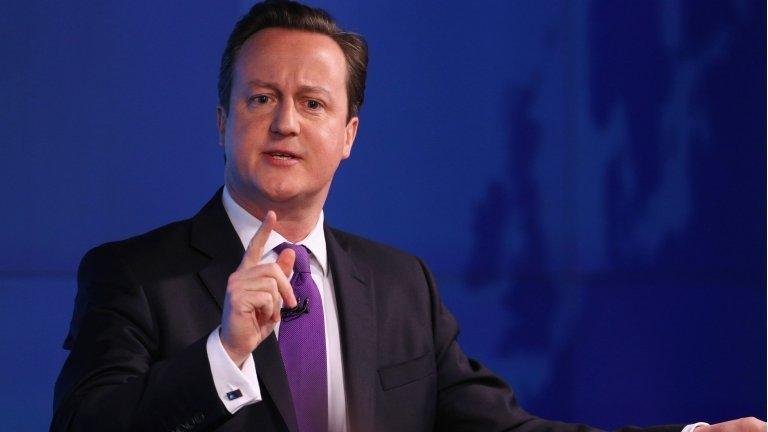David Cameron and Angela Merkel hold EU reform talks
- Published
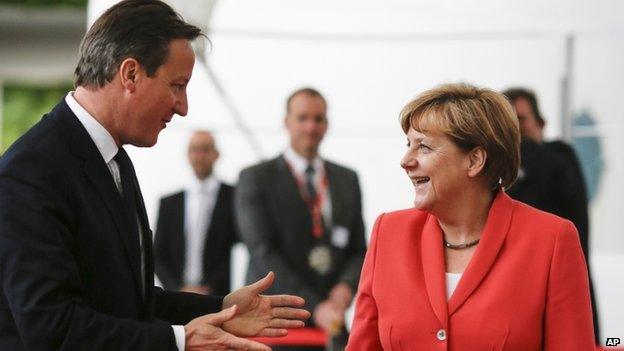
David Cameron has met German Chancellor Angela Merkel for talks in Berlin, ahead of an EU summit in Brussels.
Their discussions covered EU reform, with the UK's aims to be considered by European leaders at Thursday's meeting.
Downing Street said the pair agreed that the next steps in the UK's efforts should be "technical discussions" on the substance of the issues.
Mr Cameron has said he wants to reform the UK's membership of the EU, before holding an in/out referendum in 2017.
A Downing Street spokesman said the PM's discussions with Mrs Merkel lasted 45 minutes, and covered the eurozone, the UK renegotiation, migration, and Libya.
"On the UK renegotiation, the prime minister updated Chancellor Merkel on his talks with other leaders and they agreed that the next step should be to kick off technical discussions on the substance," the spokesman said.
French minister Emmanuel Macron told the BBC that the UK should not be able to cherry pick aspects of the EU.
The economy minister said he understood Mr Cameron's push for reform but the UK could not be allowed a "Europe a la carte".
French economy minister, Emmanuel Macron: David Cameron must not be allowed to pick and choose which regulations Britain signs up to
"I don't understand how it is possible to say 'we the UK have all the positive aspects of Europe but don't want to share any of the risk with any member states'," he said.
"It just doesn't fly. It's a common responsibility."
Meanwhile, Jonathan Faull, one of the most senior British officials in the European Commission, is to head a new Brussels task force responsible for "strategic issues related to the UK referendum", which will begin its work on 1 September.
Mr Faull, who has worked in the Commission for more than 30 years, will report directly to its president, Jean-Claude Juncker.
EU Budget Commissioner Kristalina Georgieva said Mr Faull would "lead our work as issue after issue comes to our attention, in terms of what the expectations of the UK are for reforms of the European Union, what is possible [and] how we can meet each other".
She added: "Our relations with the UK as it prepares for a referendum are very important."

EU referendum in focus
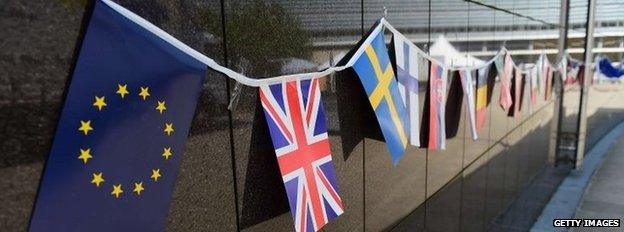
David Cameron is starting renegotiation of the terms of Britain's EU membership ahead of a referendum. Here is some further reading on what it all means:
Q&A: The UK's planned EU referendum
UK and the EU: Better off out or in?

While in Germany, the prime minister also attended a state banquet for the Queen, who is on a four-day state visit to the country.
At the event, the Queen spoke of the need for unity in Europe and how the continent must strive to "maintain the benefits of the post-war world".
She warned in her speech, which was heard by Mr Cameron and Mrs Merkel, that "division in Europe is dangerous".
The European Council summit on Thursday will be the first time the UK's objectives have been discussed officially by EU leaders.
Mr Cameron has not outlined the full details of his negotiating aims but he has given a broad indication of his priorities.
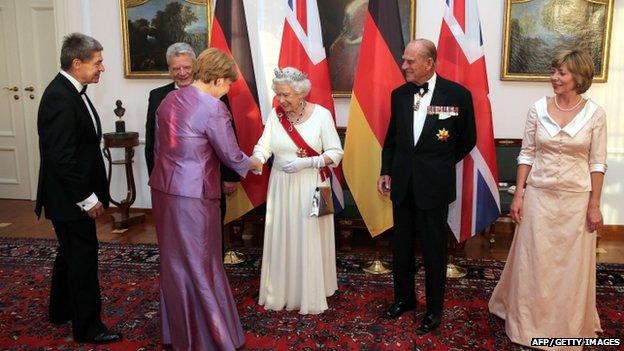
The Queen is in Germany on a state visit with Prince Philip, Duke of Edinburgh
Among them, he wants to restrict welfare entitlements, have greater powers for national Parliaments and an opt-out for Britain from the principle of "ever closer union".
The prime minister has spent the last few weeks touring European countries to explain his renegotiation aims and sound out the opinions of other leaders.
He has spoken face-to-face with his counterparts in Germany, France, Italy, Poland, Belgium, Luxembourg, Spain and Romania among others.
'Good response'
And last week, he held talks with European Parliament President Martin Schulz, Irish Taoiseach Enda Kenny and Slovakian PM Robert Fico.
Mr Cameron said his negotiations were getting "a good response", but cautioned that it will take "hard work" to get the backing of all 27 other EU leaders for his plans.
The PM has said he hopes to secure a "better deal" for the UK in Europe before putting it to a referendum in 2017, although there are suggestions it could be held as early as autumn 2016.
Labour has dropped its opposition to a referendum and now supports plans for an in/out vote.
Former Labour Home Secretary Alan Johnson is to head up the party's campaign to stay in the European Union.
- Published23 June 2015
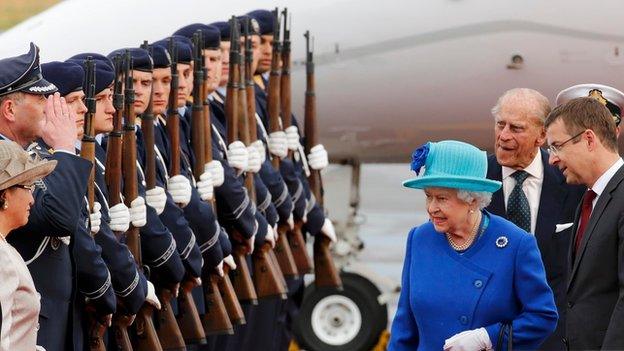
- Published18 June 2015
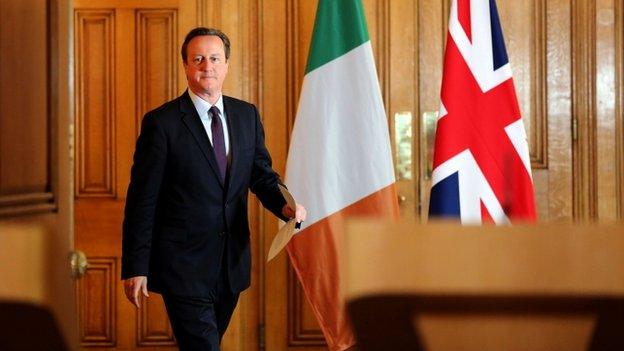
- Published19 June 2015
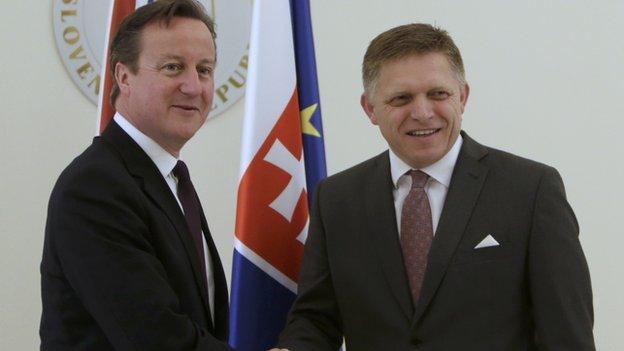
- Published24 May 2015
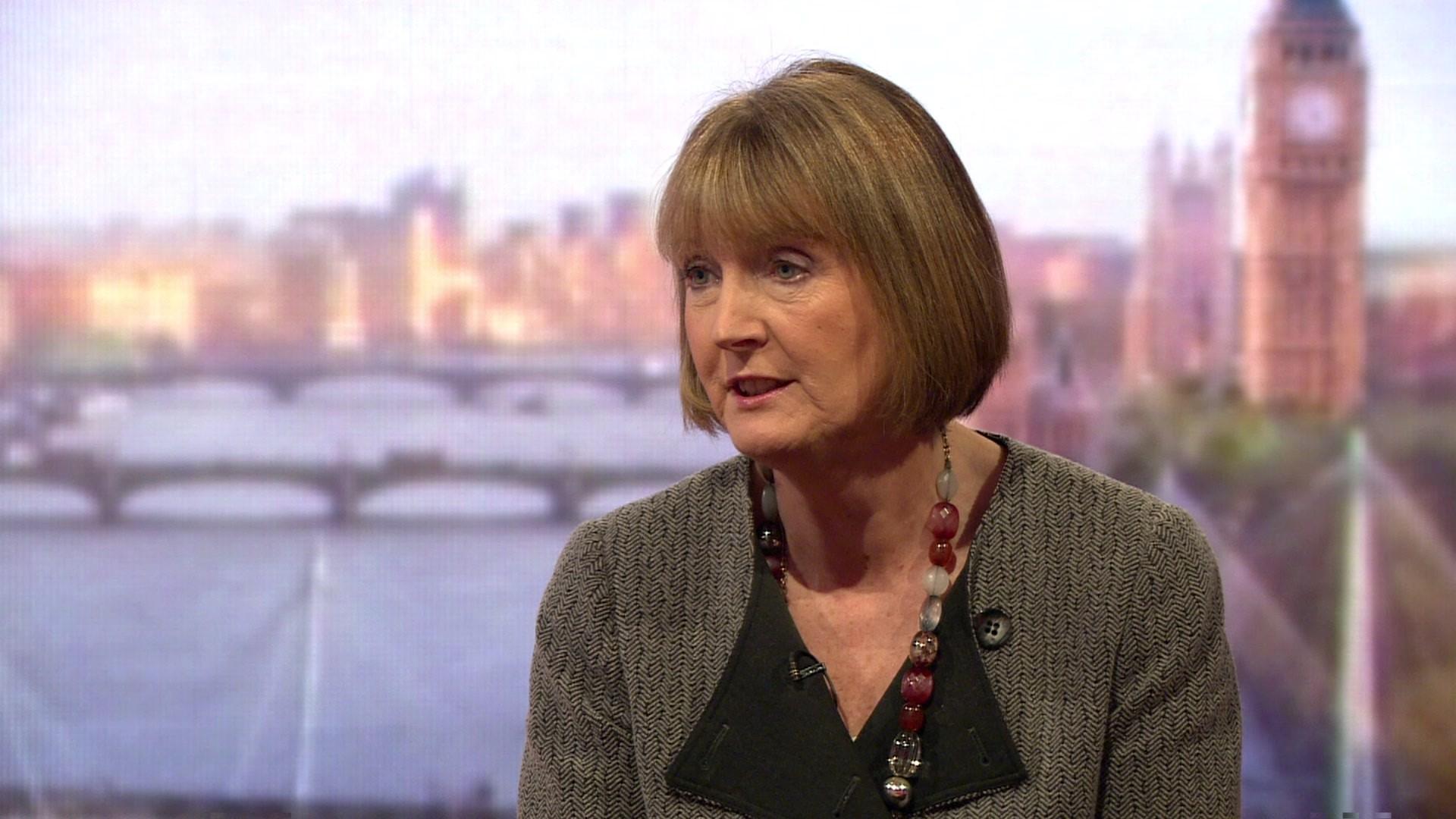
- Published23 January 2013
